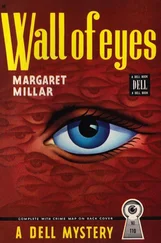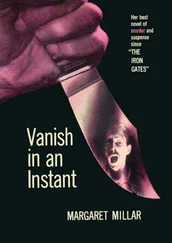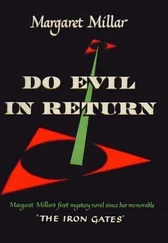When he reached home at seven-thirty, Mrs. Killeen was the only person in the house. She met him as he came in the side door from the garage.
Her greeting was characteristic. “I suppose you’ll be wanting dinner.”
“It occurred to me.”
“I go off duty in half an hour. Why don’t you send out for some pizza?”
“I don’t like pizza.”
“Everybody likes pizza.”
“I don’t.”
Mrs. Killeen consulted her wristwatch. “I have twenty-three minutes left according to my contract. I suppose I could throw something together in the microwave. How about a baked potato and some lamb chops?”
“Fine. I’ll eat in the den.”
“And remember, don’t give my dog any of the bones. They make her upchuck.”
“I think I can remember that,” Donnelly said. “Did the hospital call about my wife?”
“No. All’s quiet on the western front.” Mrs. Killeen turned to leave, then changed her mind. “You probably never tasted pizza.”
“I have tasted pizza, and I don’t like it.”
“Well, don’t blame me if things don’t turn out right. It’s cook’s night out, and her sub called to say she had to go to a funeral. And I said, you pull this stunt on me again, and the funeral you go to will be your own.”
“You have a real gift of language, Mrs. Killeen.”
He went upstairs, took a shower, put on pajamas and robe and came back down to the den adjoining the dining room. It was 8:03, and true to her word and contract, Mrs. Killeen was off duty, but she had left his dinner tray beside the leather chair in front of the television set.
Beside the plate was a note which proved that even in absentia Mrs. Killeen could have the last word: “We were out of baking potatoes and lamb chops. I had to make do. Pizza would have been better. S.K.”
The plate contained mashed potatoes, asparagus and pork chops. The potatoes tasted vaguely like cardboard, the asparagus had come out of a can and brought some of the can with it and the pork chops were stringy. But the coffee was hot and fresh, and so was the French bread.
When he’d finished the meal, he called the hospital in Long Beach, and after going through the proper channels, he heard Zan’s voice on the line.
“Zan, it’s Charles.”
“I know. They told me.” She sounded tired and irritable but under control.
“How are you, Zan?”
“What do you care?”
“You don’t have to talk to me if you don’t want to.”
“Yes, I do. They told me, ‘Be a good girl and talk to your husband.’ If I’d said, ‘what husband?’ they’d accuse me of having amnesia or being irrational and some earnest young doctor would come along and ask me, ‘Do you recall being married, Mrs. Donnelly?’ You know what my real answer would be? ‘I recall going to a wedding dressed up like a bride, but no, I don’t recall being married.’ ”
“Are your wrists healing?”
“What do you care?”
“I didn’t want you to die. Dying wouldn’t solve anything.”
“Living isn’t solving much either,” she said. “Look, why don’t you just leave me alone for a long time and I’ll leave you alone? I’m going to get over what’s bothering me, I’ll get over it. But you’ll never get over what’s bothering you. You’re stuck with it, Charles. Do you hear me, Charles? Are you listening? You’re stuck with it for the rest of your life.”
He didn’t answer. There was nothing to say. He put the telephone back on the table as if it had become too heavy to hold. Even from a distance of three feet her voice still came across sharp and clear: “When I’m better, I’m coming home. It’s my home, it belonged to my parents, and I don’t want you there when I return. You’ll have to get out. Do you hear me, Charles? Get the hell out of my house.”
He looked around the room. There was nothing in it, nothing in any other part of the house, that he couldn’t walk away from without a backward glance. It was as if he’d never lived there at all.
He thought of the poem written by a young client of his in part payment for legal services, a poet who had committed the unpoetic act of embezzling from his employer. Donnelly couldn’t understand the poem at the time, but he remembered it now:
Who took away the stars?
What happened to the moon?
Why have all the flowers gone
So soon?
Will I ever love again?
Will more trees and flowers grow
And the stars and moon appear?
I’m tired. Tell me no.
Harry had watched the six o’clock news in the tiny lobby of the motel. An hour later he turned it off and said to the young black behind the counter, “Don’t nothing good ever happen in this world?”
The young man dragged his eyes away from the racing form he was studying. “You don’t like what’s happening in the world, you jump off.”
“Where?”
“The edge.”
“The world ain’t got an edge.”
“Then it looks like you’re stuck here like the rest of us.”
The thought of this made Harry hungry. He walked two blocks up the main street to a take-out stand and bought a bucket of fried chicken. Then, at a discount bakery outlet where day-old goods were sold at half price, he picked up a bag of sourdough rolls and a box of doughnuts.
When he returned to the motel room, Richie was still sleeping on the bed. The long-sleeved sweater he’d worn during his morning testimony had been flung across the back of a chair, and he had on the muscle shirt that was his uniform ever since arriving in California. He looked very young and innocent in his sleep, and Harry thought this was one of the good things that happened in this world, his boy, Richie.
Harry shook him gently by the shoulders. “Richie, wake up. Come and get some supper.”
Richie’s eyes opened, but there was no other movement.
“Hey, son, come on and eat.”
“I’m not hungry.”
“I never heard you say you weren’t hungry before. Look, fried chicken, doughnuts, sourdoughs, good stuff.”
“I don’t want any,” Richie said. “I had a couple of beers this afternoon.”
“Wait a minute. You’re not old enough to drink beer.”
“I look old enough.”
“The hell you do. You look like a fifteen-year-old kid. In this state you don’t do no legal drinking till you’re twenty-one. That’s six more years. You show me the guy that sold you the stuff and I’ll have him arrested.”
Richie merely stared up at the ceiling with the sullen expression on his face that seemed as much a part of the teenage uniform as the muscle shirt and shrunken jeans.
Harry knew there was no use talking to him, so he sat down and ate three pieces of chicken and a roll, and then he ate three more pieces of chicken and another roll and four doughnuts.
Finally Richie said, “You going to eat it all?”
“Why not? There’s no one around to share it with.”
“I wouldn’t mind tasting a piece.”
“Help yourself.”
Richie ate standing at the window, watching the boulevard traffic and the marina lights softened by mist. He felt sick, not from the beer — he’d bought only one can and hadn’t finished that — but from fear and indecision. Every now and then a cramp would seize his stomach like an iron hand.
“How come you don’t talk to me no more?” Harry said.
“I talk. I’m talking now.”
“Not like in the old days. You used to wait dockside for me to come in after a job. You’d start jabbering away, telling me everything in your head.”
“I was just a kid then.”
“You’re still a kid or you’d have more sense than to wear those pants tight enough to strangle your balls. They’re going to shrivel up like a couple of walnuts. You always had good balls. You got that from me.”
Читать дальше
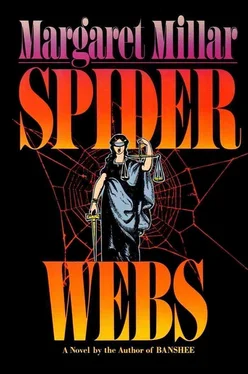


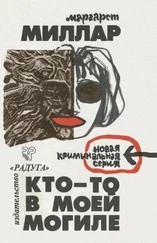
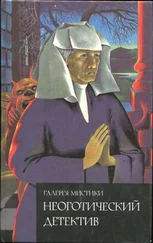
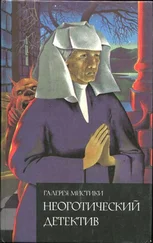

![Маргарет Миллар - Rose's Last Summer [= The Lively Corpse]](/books/384369/margaret-millar-rose-s-last-summer-the-lively-c-thumb.webp)
